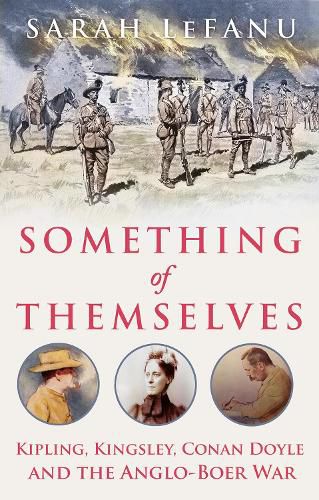Readings Newsletter
Become a Readings Member to make your shopping experience even easier.
Sign in or sign up for free!
You’re not far away from qualifying for FREE standard shipping within Australia
You’ve qualified for FREE standard shipping within Australia
The cart is loading…






In early 1900, the paths of three British writers-Rudyard Kipling, Mary Kingsley and Arthur Conan Doyle-crossed in South Africa, during what’s become known as Britain’s last imperial war. Each of the three had pressing personal reasons to leave England behind, but they were also motivated by notions of duty, service, patriotism and, in Kipling’s case, jingoism.
Sarah LeFanu compellingly opens an unexplored chapter of these writers’ lives, at a turning point for Britain and its imperial ambitions. Was the South African War, as Kipling claimed, a dress rehearsal for the Armageddon of World War One? Or did it instead foreshadow the anti-colonial guerrilla wars of the later twentieth century?
Weaving a rich and varied narrative, LeFanu charts the writers’ paths in the theatre of war, and explores how this crucial period shaped their cultural legacies, their shifting reputations, and their influence on colonial policy.
$9.00 standard shipping within Australia
FREE standard shipping within Australia for orders over $100.00
Express & International shipping calculated at checkout
In early 1900, the paths of three British writers-Rudyard Kipling, Mary Kingsley and Arthur Conan Doyle-crossed in South Africa, during what’s become known as Britain’s last imperial war. Each of the three had pressing personal reasons to leave England behind, but they were also motivated by notions of duty, service, patriotism and, in Kipling’s case, jingoism.
Sarah LeFanu compellingly opens an unexplored chapter of these writers’ lives, at a turning point for Britain and its imperial ambitions. Was the South African War, as Kipling claimed, a dress rehearsal for the Armageddon of World War One? Or did it instead foreshadow the anti-colonial guerrilla wars of the later twentieth century?
Weaving a rich and varied narrative, LeFanu charts the writers’ paths in the theatre of war, and explores how this crucial period shaped their cultural legacies, their shifting reputations, and their influence on colonial policy.